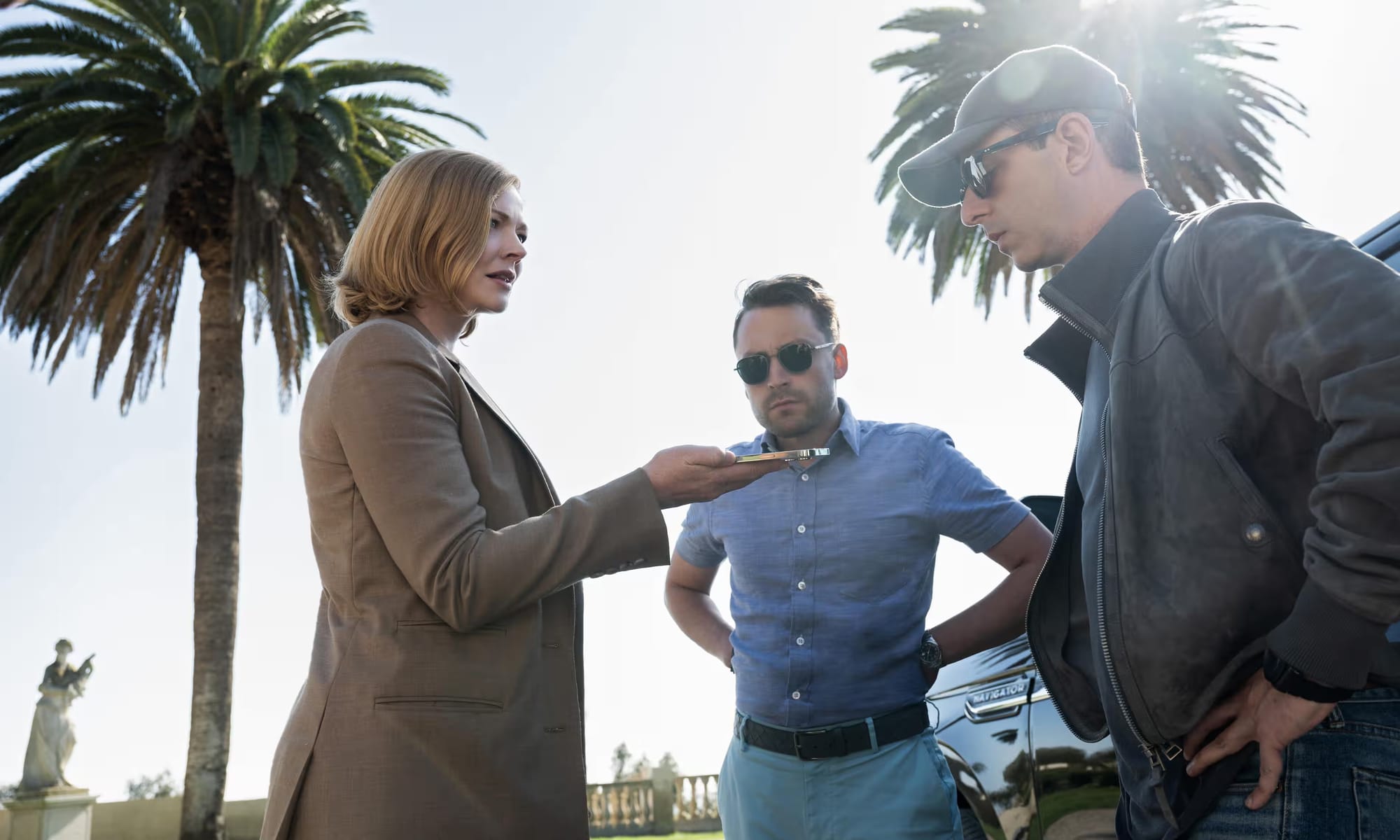"We're already cooked": Kieran Culkin on family, pranks, and therapy
He's been acting since childhood, yet he prepares for scenes mere minutes before they're shot. Now, this mischievous star of "Succession" is generating Oscar buzz. How did this chaotic, charismatic actor reach such heights?

Kieran Culkin, 42, fidgets in the plush Corinthia hotel bar in London. He tries a chair, then a banquette, before settling back in the chair. He orders champagne, eyes my notes with playful suspicion, and declares the interview started with a villainous cackle. This frenetic energy fuels the next 90 minutes, a whirlwind of anecdotes delivered with a dizzying array of gestures and impersonations. He confesses to a wild youth, recounting the time he spiked a prop joint with real marijuana during a press night performance, inadvertently getting the entire cast, including Mark Ruffalo, high.

Most recognize Culkin, brother of "Home Alone" star Macaulay, as Roman Roy, the acid-tongued youngest son in HBO's "Succession." Culkin infused the spoiled brat with a surprising vulnerability, making Roman a captivating figure despite his barrage of insults. His performance earned him an Emmy, a Golden Globe, and a Critics Choice award. Though he jokingly calls the show "suck session," he admits to weeping when it ended.
Culkin brings a similar unrestrained charm to his role as Benji Kaplan in "A Real Pain," co-starring and directed by Jesse Eisenberg. The film follows two cousins on a Holocaust tour in Poland, a journey fraught with emotional tension and unexpected humor. Eisenberg, Oscar-nominated for "The Social Network," describes it as a "fraught" American buddy road story.

The film's genesis was an online ad for a "Holocaust Tour (with lunch)," which Eisenberg initially found absurd but later recognized its comic potential. He'd previously explored the dynamic between characters like Benji and David in plays and had personally visited Poland to commemorate family members lost in the Holocaust.
Culkin's first concern was his non-Jewish heritage. Eisenberg reassured him, and Culkin now defers any questions on the topic to the writer-director. He's visibly relieved when I mention positive reviews from David Baddiel, author of "Jews Don't Count," who considers Culkin an Oscar contender.

Culkin, the fourth of seven siblings, began acting as a child. Only he and his younger brother Rory remain in the profession. Macaulay, after a few films, now focuses on writing and painting. Kieran's early role in "Home Alone" was his second professional job. He's since appeared in numerous films and plays, including "Father of the Bride" and "The Cider House Rules." He honed his portrayal of troubled youth in "Igby Goes Down" and "The Dangerous Lives of Altar Boys." It wasn't until "Infinity Baby" at age 33 that he acknowledged acting as his career, admitting his lack of other skills.
Culkin recounts the London premiere of "A Real Pain" with Eisenberg. He celebrated with his "Succession" co-stars and reveled in the attention of a starstruck fan. He also shared an amusing anecdote with "Succession" creator Jesse Armstrong about how Eisenberg cast him without an audition, despite having only met him briefly twice before. Eisenberg, it turns out, had never seen "Succession" or any of Culkin's work.

The story takes a hilarious turn as Culkin relays Armstrong's disbelief and insistence on uncovering the truth. The confrontation culminated in a live Q&A where Armstrong, seated in the front row, directly accused Eisenberg of lying. It was later revealed that Eisenberg's sister, after reading the script, had urged him to cast Culkin.
Culkin finds Eisenberg's quirks endlessly amusing, mimicking his anxieties and insecurities on set. He contrasts his own last-minute approach to learning lines with Eisenberg's meticulous preparation, recalling Eisenberg's bewildered reaction to his unconventional method.

He dismisses any discussion of his acting technique, stating that he relies on instinct and avoids overthinking his roles. He finds it inauthentic when actors try to force emotions on set, believing that true feelings are often masked or subconscious. He prefers to inhabit the character and let the performance unfold naturally.
Culkin acknowledges the inevitable comparisons between himself and his characters, quipping, "I can't help it that we have the same face and voice." Even his wife, Jazz Charton, sometimes notices the similarities between him and Roman Roy. He recounts various impulsive and mischievous acts, reminiscent of Roman, including a red carpet prank with J. Smith-Cameron and an impromptu nipple grab during an audition with Eisenberg.
He admits to being quick to judge and share his opinions, once even calling his mother-in-law "the interrupting goose." However, unlike Roman, he tries to filter his thoughts before they become insults. He also notes that Roman, unlike himself, never faces consequences for his actions.
He then shares a story about spiking a prop joint with real marijuana in a play, much to the amusement of his co-stars, including Mark Ruffalo. He recounts a similar incident years later with Colin Hanks, highlighting his youthful recklessness.

The conversation shifts to family life as Culkin's phone vibrates with messages from his wife. He proudly shows off pictures of his two young children and discusses the challenges and joys of parenthood. He expresses his desire to be a full-time dad and his sadness at the thought of his children growing up and needing him less.
He describes the chaos of managing two young children, from dealing with car sickness to navigating the logistics of playdates. He finds a strange calm in these everyday challenges and embraces the chaos. He even enjoys unpacking their belongings and setting up their toys in hotel rooms.
Culkin admits to feeling overwhelmed by global issues like politics and climate change. He prefers to focus on his immediate surroundings and manage his life "moment to moment," finding solace in simple tasks like folding laundry.
"A Real Pain" is a testament to Culkin's unique talent and chaotic energy. As he navigates the complexities of his personal and professional life, he continues to captivate audiences with his unpredictable charm and raw honesty.
This rewrite aims for clarity and flow while retaining the essence of the original interview. It focuses on presenting Culkin's thoughts and experiences in a more structured way, making it easier for readers to follow the narrative and appreciate his unique personality.






